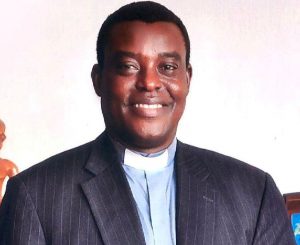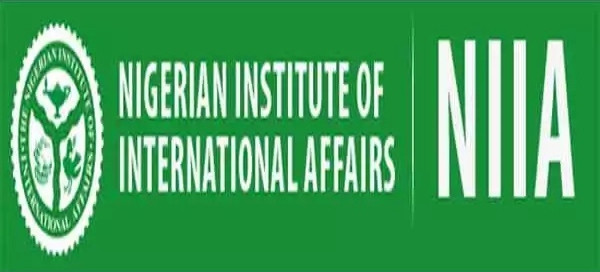The cream of Nigeria’s intellectuals of statecraft, particularly academics and operatives in the policy mill are cracking the potentially game changing theme, “Looking Back, Going Forward: Setting the Agenda for Nigerian Foreign Policy”. The two-day conversation marks what can be observed as the return of the Nigerian Institute of International Affairs, (NIIA) to the public sphere from which, for some reasons, it has been out of sight for some years.

Prof Eghosa Osaghae, NIIA’S new helmsman
All dimensions of Nigerian foreign policy are being examined by leading and new names in the domain: Prof Eghosa Osaghae, the newly appointed DG of NIIA, Femi Otubanjo, Alade Fawole, Alaba Ogunsanwo, Saliu Hassan Saliu, Habu Mohammed, W O Alli, Osita Agbu, Amadu Sessay, Adekeye Adebajo, co-editor of a major text on Nigerian foreign policy which goes by the title, Gulliver’s Troubles: Nigeria’s Foreign Policy After the Cold War. Others are Prof Kamilu Fagge, Dr. Joshua Bolarinwa, Dr. Willie Eselebor, Pam Sha, Victor Adetula, Cyril Obi, Best Shadrack and Darren Kew of the University of Massachusetts, (USA).
What became clear from the initial presentations on Day One is that Nigerian intellectuals largely subscribe to the state-centric discourse of foreign policy and the associated emphasis on concepts such as sovereignty, the domestic variable, iron-cast foreign policy agenda, capacity of state institutions, economic diplomacy and the likes although a few are also talking about contextual cum contingent character of the state and the imperative of representational practices of power so that no Nigerian foreign policy move is left unnarrated with an eye on the hegemony of such narrative while also drawing on the country’s cultural resources such as the emergent film industry, (Nollywood).

‘Gulliver’s troubles’ are being looked at by her core of foreign policy scholars brought together by her leading state-owned think tank, NIIA!
The above conclusion is, however, a deduction from the first few papers on Day One and it is not clear if that state-centric notion will prevail to the end. Prof Osita Agbu of the Department of Political Science at Abuja based Baze University sends a signal in a different direction in this regard by focusing on the interface between technology and foreign policy. Technology has complicated the domain of foreign and defence policy with particular reference to neorealist privileging of the state. That narrative of foreign policy is held in many academic and policy quarters to have run out of stream in the age of panoptic simulation, surveillance and megamachinism which enable digitally innovative states to overwrite space and make nonsense of sovereignty. Outside of Agbu, the other presentation Abuja as well as DC are most likely to want to listen to is Prof Darren Kew’s.
Whichever direction the conversation goes, it marks the return of the NIIA as the hub of discourses, theories, big ideas or constructs without which Nigerian foreign policy will be no more than a rehearse of commonsense. The argument about how ideas create reality is a straight forward one: “of course, earthquakes occur, and their occurrence is independent of consciousness but it is their construction in discourse that determines whether they are ‘movements of tectonic plates’ or manifestations of the wrath of the gods”
Aside from this Roundtable, NIIA has been conducting other conversations, particularly the one on “Boko Haram Insurgency and the Implication of Foreign Intervention”, the Roundtable on “Insecurity in the Niger Delta” (based on a 2021 book on the subject); “US/Africa Relations Under a New Dispensation”.




























